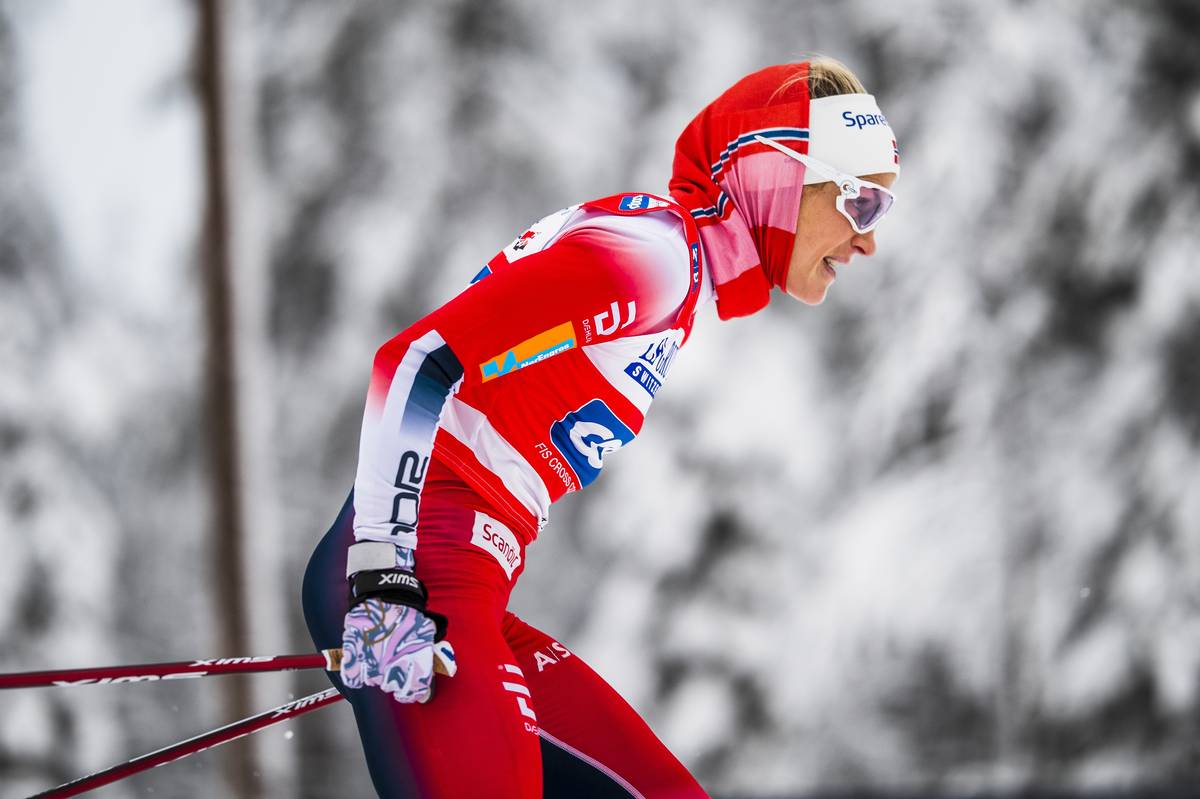
This World Cup coverage is made possible through the generous support of Marty and Kathy Hall and their A Hall Mark of Excellence Award. To learn more about A Hall Mark of Excellence Award or to learn how you can support FasterSkier’s coverage please contact info@fasterskier.com.
For those new to the pursuit format, racers begin a set “time back” from the first starter, who in this case is the overall leader after two races. A skier’s time back is an aggregate of their times from Friday’s sprint race and Saturday’s 10 k classic.
So there’s the primer for those coming to the cross-country World Cup for the first time.
***
Some narratives fail to develop despite our fruitful imaginations. Therese Johaug of Norway scurried from the start on Sunday’s 10-kilometer freestyle pursuit with a 16-second cushion over Sweden’s Frida Karlsson and Russian Natalia Nepryaeva. The time margins roughly held for 2.5 k, as the 64 other starters behind Johaug coalesced into efficient working groups or found themselves solo skiing.
Add 2.5 k more to the elapsed distance, and Johaug had virtually sealed up the win at 5 k. By then she doubled the time gap to roughly 32 seconds to a group of chasers including mostly Swedes. They included Ebba Andersson, Tatiana Sorina of Russia, Karlsson, Maja Dahlqvist, Linn Svahn, and Nepryaeva. Noticeable and noted, was a dearth of Norwegian skiers.
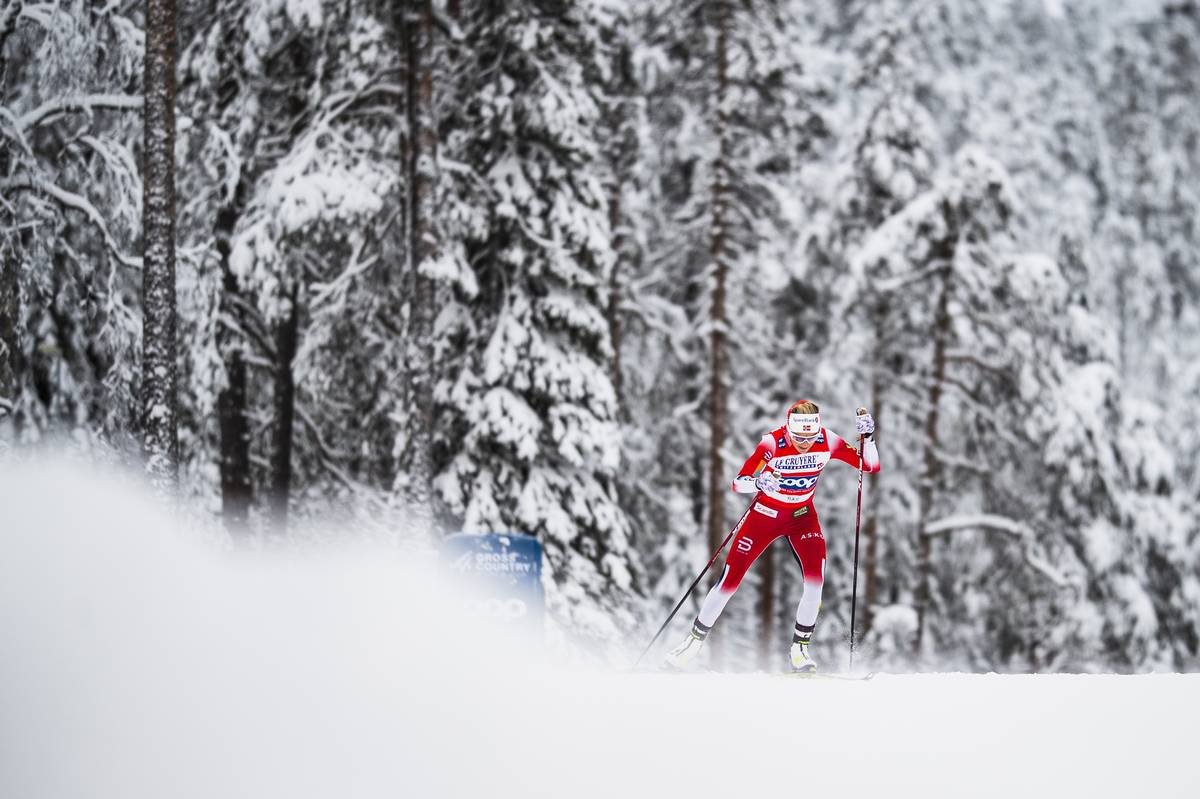
Doing as she does, Johaug simply padded the time cushion as she cruised to a 47-second win to take the Ruka Triple weekend. Last season’s overall World Cup winner, Johaug, added to Norway’s tally of overall wins in the Ruka mini-tour. Of the past 10 additions, Norway has won nine, Sweden one. Although with the small sample size of a single weekend of World Cup racing, Sweden appears primed to alter that metric in the future.
Rounding out the podium was Sorina in second (+47.0), and Andersson in third (+48.6). Karlsson placed fourth (+50.8), while Rosie Brennan of the U.S. Ski team knocked a homerun of a race to end her Ruka campaign in fifth (+52.5). For Sorina, this weekend was a return to the World Cup after taking last season off to start a family. It was a career-best result for the Russian. According to FIS, her best World Cup result before the Ruka series was 15th place in a 2017 classic sprint. Sorina’s best result for a distance event on the World Cup was 38th in Ruka’s 2018 10 k classic.
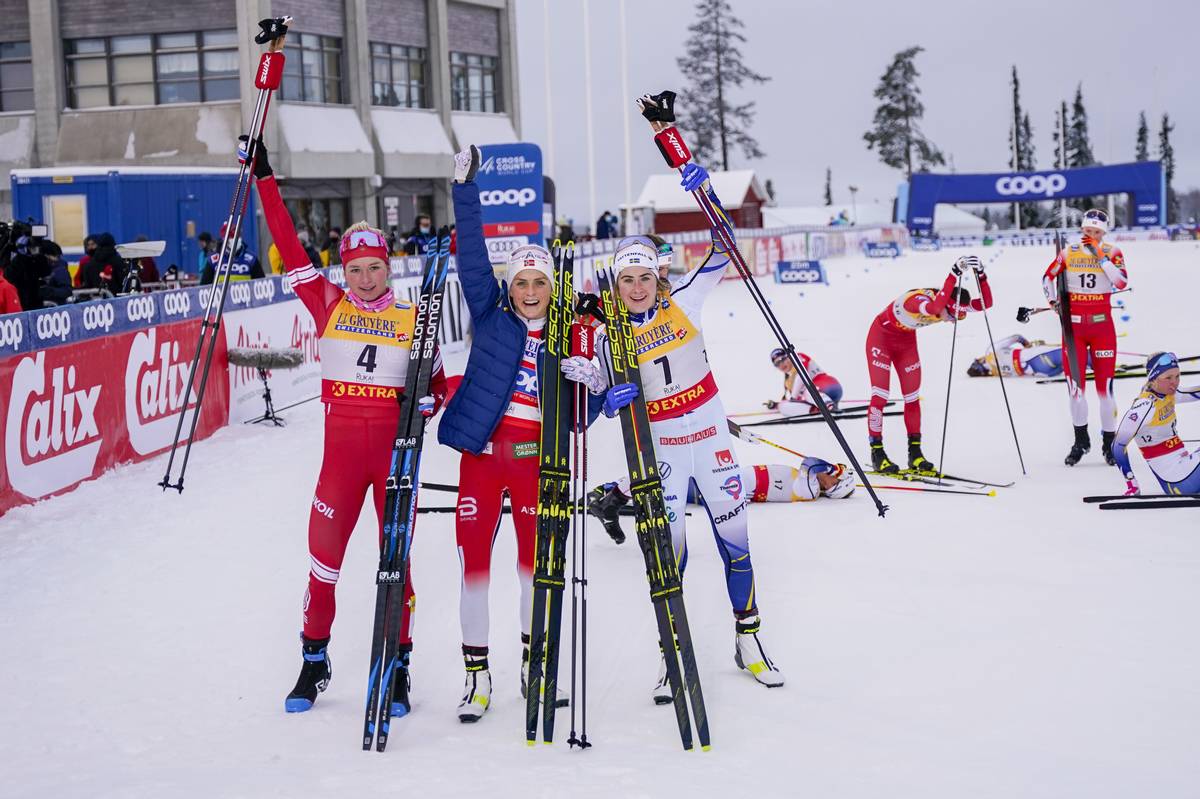
Let’s drill down on Brennan’s day. Her fifth place on Sunday marks a career World Cup best. According to the FIS database, Brennan first emerged in the top-10 back in Davos, Switzerland’s 10 k skate in 2018 with sixth place. She matched that placing again in Ruka last season in the 10 k classic.
On Sunday, Brennan started in bib 11, 42 seconds behind Johaug, but within a comfortable distance of several skiers she could work up to and pass as she leapfrogged into position to make a strike at her first World Cup podium. In the firm conditions, Brennan made gains. Passing through the halfway mark at 5 k, she was solo-skiing aiming to lock onto a group of six skiers seven seconds ahead.

The group ahead, which included all those listed above, absent Joahug, wasn’t exactly highly organized in their chasing. Yet Brennan lost vital time in the ensuing kilometer and was 9 seconds back at 6.1 k. With Brennan’s drive and an efficient paceline not coalescing, Brennan was able to gap up to the chasers by 7.5 k.
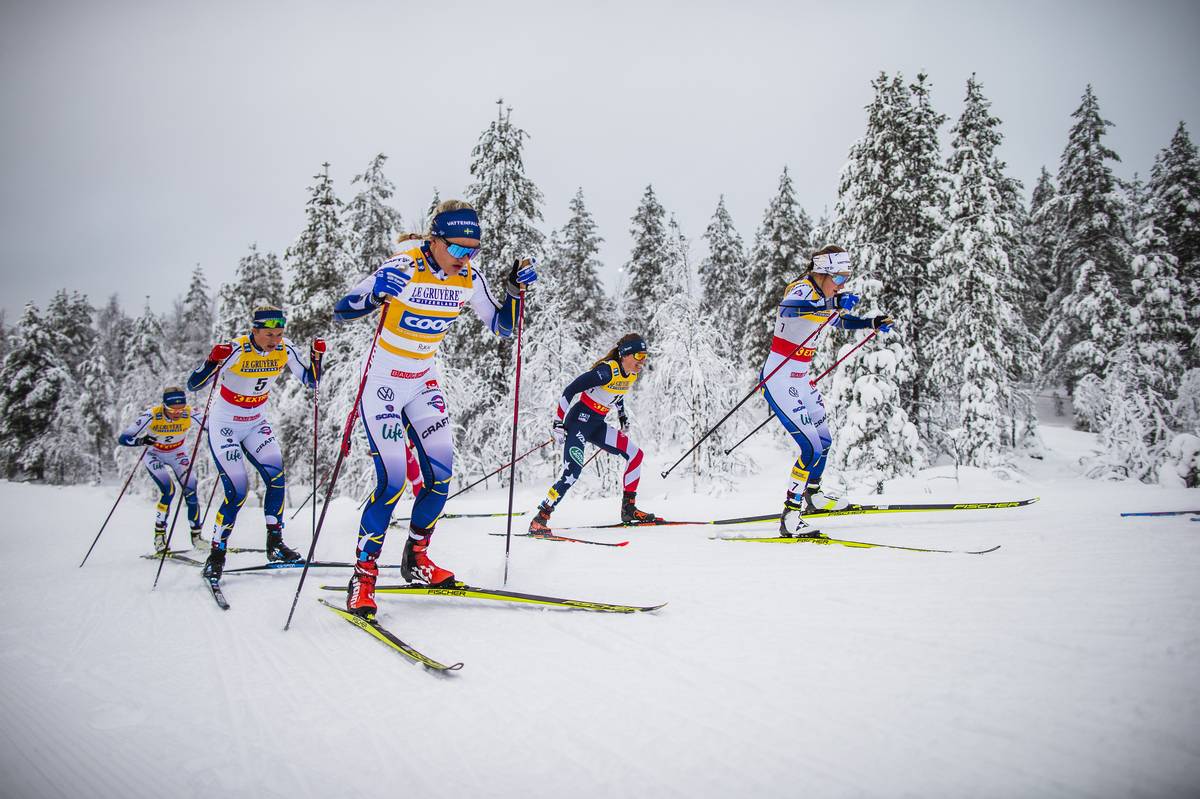
With 2.5 k remaining, the chess match ensued. On a screaming downhill, amidst the tight pack racing as the race closed out, several skiers took a tumble, including Dahlqvist, Svahn, and Nepryaeva. According to Brennan, she was able to slalom around those fallen skiers and keep upright without scrubbing too much speed.
“There was a gap to Ebba, Frida, and [Tatiana] at that point, and I knew those other girls behind me were closing hot … I was going for all I could to try and not get caught,” said Brennan.
Brennan fell back slightly in the closing moments as Sorina, Andersson, and Karlsson gained precious meters. In her battle for positioning, Brennan held off Helen Marie Fossesholm of Norway, as she crossed the line in fifth. Brennan raced the third-fastest time of the day, only 10.5 seconds off of Johaug’s first-place time of 25:06.2.
Post-race interview with Rosie Brennan
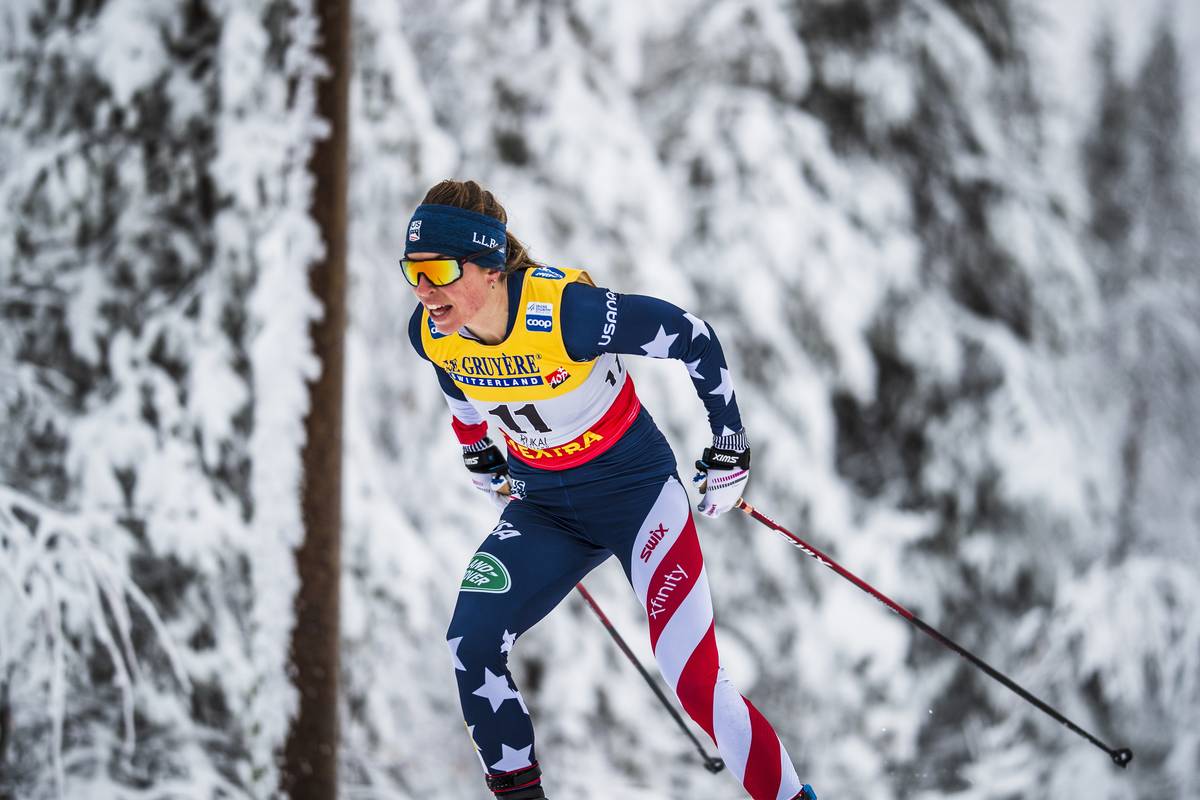
Brennan’s U.S. teammate, Jessie Diggins, began in bib 21, 1:20 minutes back. With a slew of skiers ahead to potentially pick-off, Diggins charged. By the finish, she had gained several spots to earn 15th place overall and post the fifth-fastest time of the day (+24.2).
Over the past few years, Diggins has been the U.S. skier to mark. As noted in several earlier stories, the Ruka weekend has been kind to Diggins, but not podium-friendly. However, it usually serves up a dose of race-effort stimulus to prime her motor for other objectives.
Since 2015, on the occasion when Ruka has presented a three-race series, she’s placed 37th, 12th, 5th, and this weekend’s 15th. On the off years, when it’s a two-race series in Ruka, her 2020 performances are reflective of her historic build-into-the-season template.
Post-race interview with Jessie Diggins
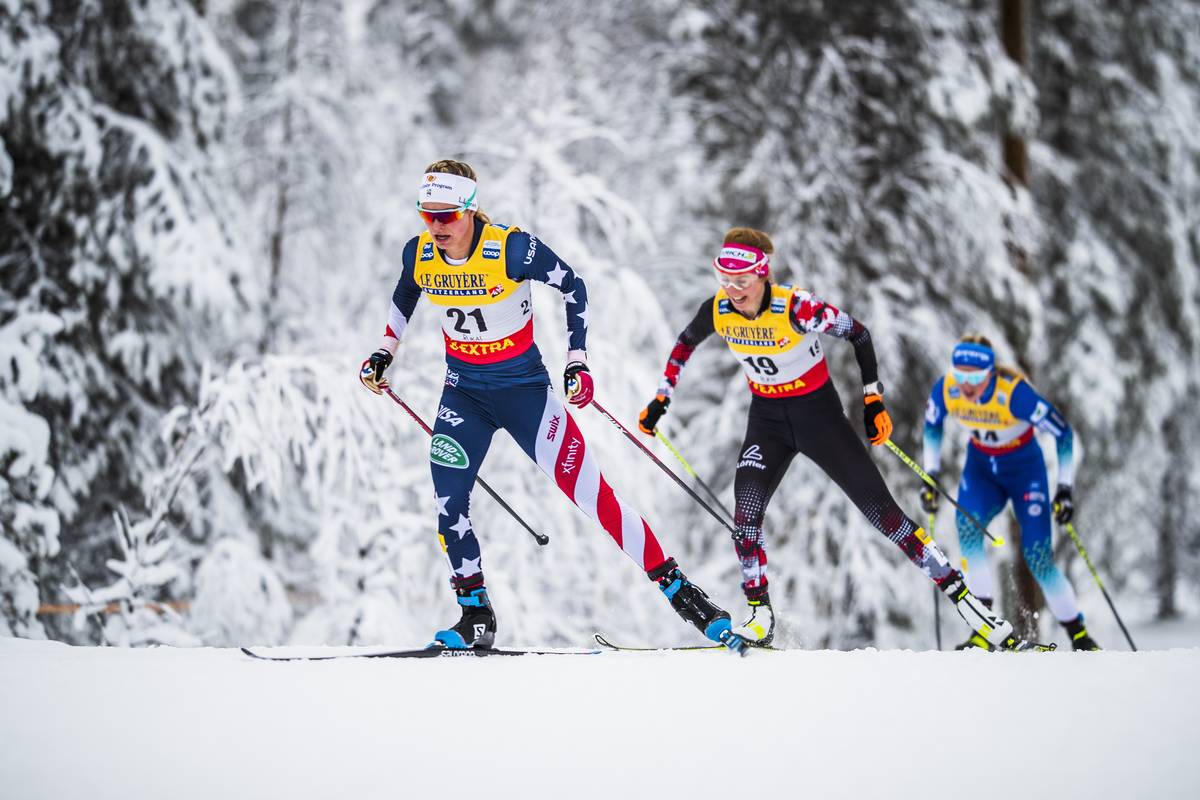
Hailey Swirbul of the U.S. finished in 32nd (+3:20.1) with the 28th fastest time of day. Caitlin Patterson placed 46th (+4:06.1) with the 27th fastest time, Julia Kern was 50th (+4:53.2), Katharine Ogden 53rd (+5:36.5), and Sophie Caldwell Hamilton 57th (+5:52.7).

World Cup racing takes a break until Dec. 12 in Davos, Switzerland. Next weekend’s racing in Lillehammer, Norway was previously postponed due to the pandemic.
-Harald Zimmer contributed
Stage 3 / Final Standings | Winner of the Day
Jason Albert
Jason lives in Bend, Ore., and can often be seen chasing his two boys around town. He’s a self-proclaimed audio geek. That all started back in the early 1990s when he convinced a naive public radio editor he should report a story from Alaska’s, Ruth Gorge. Now, Jason’s common companion is his field-recording gear.



